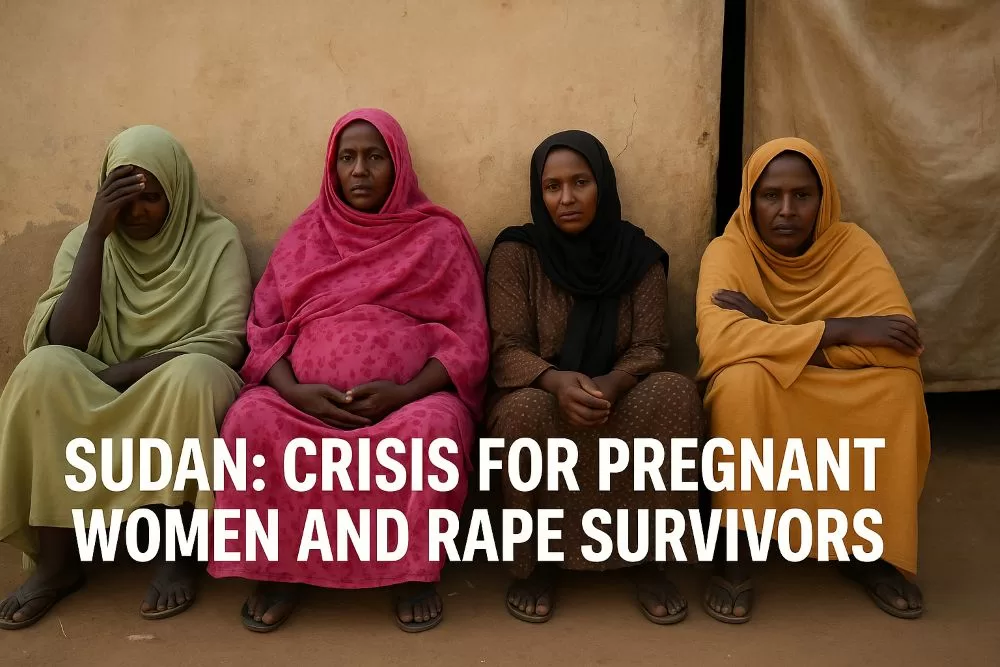
CAIRO, June 4 (WSH) —As Sudan’s civil conflict drags on, a devastating collapse in humanitarian funding is leaving millions of women and girls without critical health services. Pregnant women, rape survivors, and displaced families are being cut off from emergency care and protection as the country’s fragile health system teeters on the edge of total breakdown.
According to the United Nations Population Fund (UNFPA), over 1.1 million pregnant women are now without access to antenatal, delivery, or postpartum care. This comes amid ongoing violence, access restrictions, and drastic donor funding cuts that have shuttered over half the 93 health facilities previously supported by the agency.
“In Gedaref, we see women arrive after months in hiding, malnourished, exhausted, in labor and in shock,” said Balghis, a midwife supported by UNFPA. “It’s no longer the exception — it’s the reality. We are racing against time every single day.”
The situation is particularly dire in conflict hotspots such as Khartoum, the Darfurs, Al Jazirah, and Kordofan, where nearly 80% of health facilities are non-functional. UNFPA warns that the total collapse of reproductive and maternal health services could result in thousands of preventable deaths.
Rape Survivors Left Defenseless
Equally alarming is the shrinking safety net for survivors of gender-based violence. Sudan now faces a near-total breakdown in services designed to protect and support women and girls fleeing rape and assault. Out of 61 safe spaces once operational, 11 have already closed due to funding shortfalls. Only one in four clinics offering rape crisis care remains fully functional across the country’s 18 states.
Dina, a gender-based violence specialist in Sudan, said the level of abuse is “beyond anything we’ve previously documented.”
“We’re seeing adolescent girls raped, impregnated, infected with STIs, and left to fend for themselves in camps or abandoned buildings,” she said. “These girls will carry the trauma for decades, but many are still fighting — for survival, for justice, for a voice.”
According to UNFPA, 12.1 million people — mostly women and girls — are now at risk of gender-based violence. Demand for services tripled in 2024, yet only a fraction of that need is currently being met.
‘A Life-or-Death Choice’
The humanitarian funding crisis is not new, but its impact is now acute. In 2024, donors contributed less than 20% of the $62.8 million needed to tackle gender-based violence. Cuts to sexual and reproductive health services — deeply intertwined with protection services — have compounded the crisis.
“The world is turning its back on the women and girls of Sudan,” said Laila Baker, UNFPA Regional Director for the Arab States. “These are not just budget decisions — they are life-or-death choices. When the services that uphold women’s safety, dignity, and rights disappear, the message is clear: their suffering is invisible, their lives don’t matter. This is unacceptable.”
A Call to Action
UNFPA is urgently calling on the international community to respond with immediate funding to save lives and restore basic services for women and girls in Sudan.
“The silence is deafening,” said Baker. “But silence is a choice — and it’s costing lives.”

